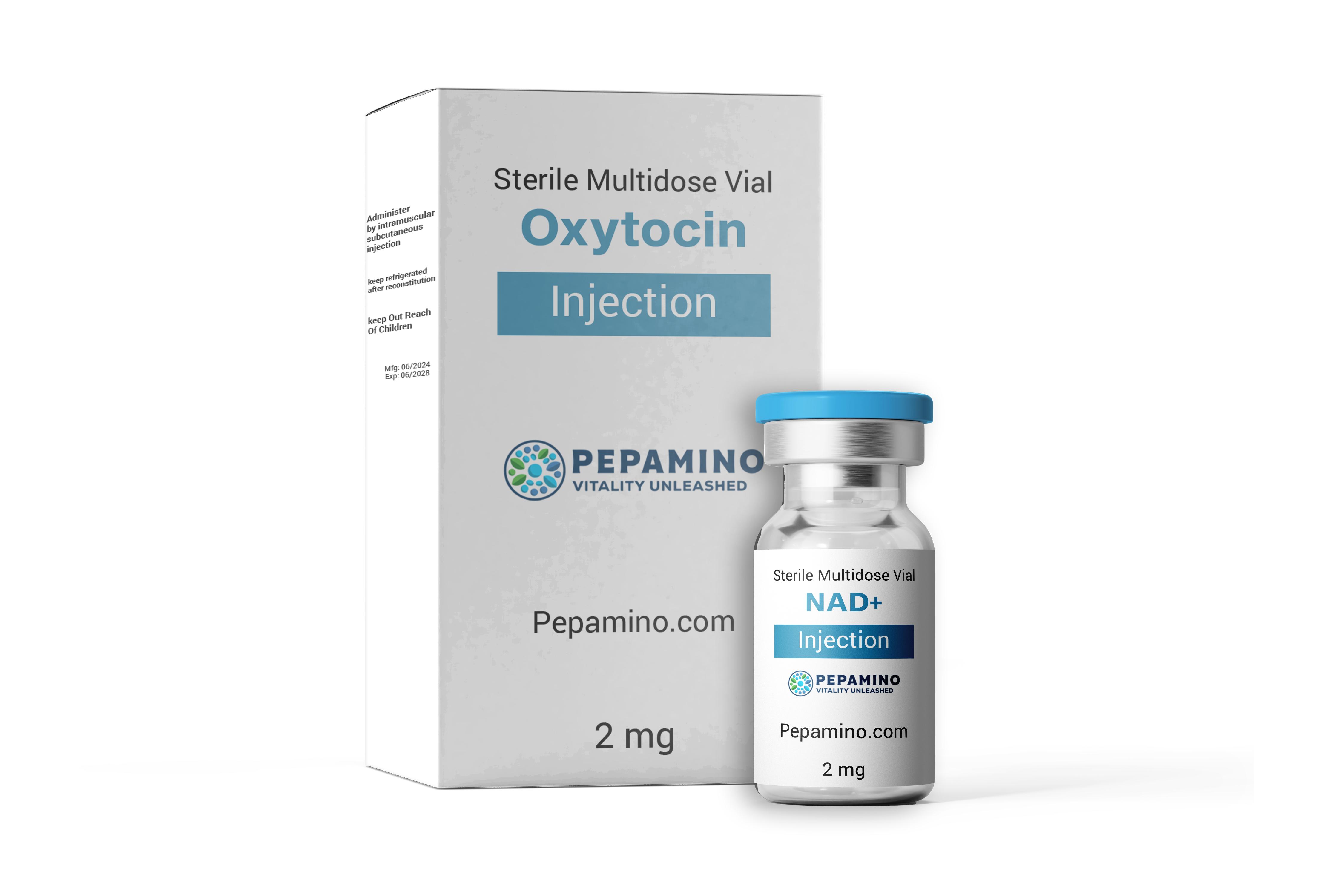Oxytocin, often called the "love hormone," is a naturally occurring peptide hormone that has captured the attention of researchers worldwide. Known for its role in social bonding and emotional connections, Oxytocin is being explored for its potential applications in fields such as mental health, social behavior studies, and more. This blog delves into the scientific relevance of Oxytocin and why it remains a fascinating subject in peptide research.

Oxytocin is a peptide composed of nine amino acids, primarily produced in the hypothalamus and released by the pituitary gland. While popularly associated with feelings of love and trust, its scope in research extends far beyond. Studies have shown its involvement in:
Oxytocin functions as both a hormone and a neurotransmitter, binding to specific receptors in the brain and body. This dual role enables it to:
Oxytocin is being studied for its potential to address conditions such as anxiety, depression, and PTSD. Researchers are particularly interested in its ability to foster positive social interactions and emotional stability.
Emerging studies are exploring how Oxytocin could enhance social engagement and communication in individuals with ASD, opening doors to new therapeutic approaches.
From parent-child bonding to romantic relationships, Oxytocin is at the center of studies on improving emotional connections and resolving interpersonal conflicts.
Oxytocin is safe for use in regulated research environments and is not intended for human consumption outside of approved studies. Ethical practices and strict adherence to research guidelines are crucial when working with this peptide.
High-quality Oxytocin for research purposes is available at Pepamino.com. Our products are designed for scientific investigations, ensuring reliability and purity for all your research needs.
At Pepamino.com, we are dedicated to supporting groundbreaking research with premium-grade peptides. Our commitment to transparency, quality, and ethical standards makes us a trusted source for researchers worldwide.
Oxytocin offers remarkable opportunities for exploring social behavior, emotional well-being, and therapeutic innovations. For researchers seeking reliable peptides, Pepamino.com is your go-to destination for scientifically validated products.
Oxytocin’s diverse applications, from mental health to relationship studies, make it a cornerstone in peptide research.
Its ability to directly influence social and emotional pathways provides unparalleled insights into human behavior.
As research progresses, Oxytocin continues to inspire novel approaches in therapy and wellness studies.
Los Angeles, a hub of scientific innovation, leads the way in Oxytocin research. Renowned institutions and labs are investigating:
The potential of Oxytocin remains vast, with future studies likely to focus on:
Oxytocin’s influence on social bonding, emotional well-being, and therapeutic innovation underscores its significance in peptide research. As scientists continue to unlock its mysteries, Oxytocin holds promise for transforming our understanding of human connection and mental health.
Dive deeper into the potential of Oxytocin for cutting-edge research. Visit pepamino.com to access premium-quality peptides and support groundbreaking studies in wellness and beyond.




